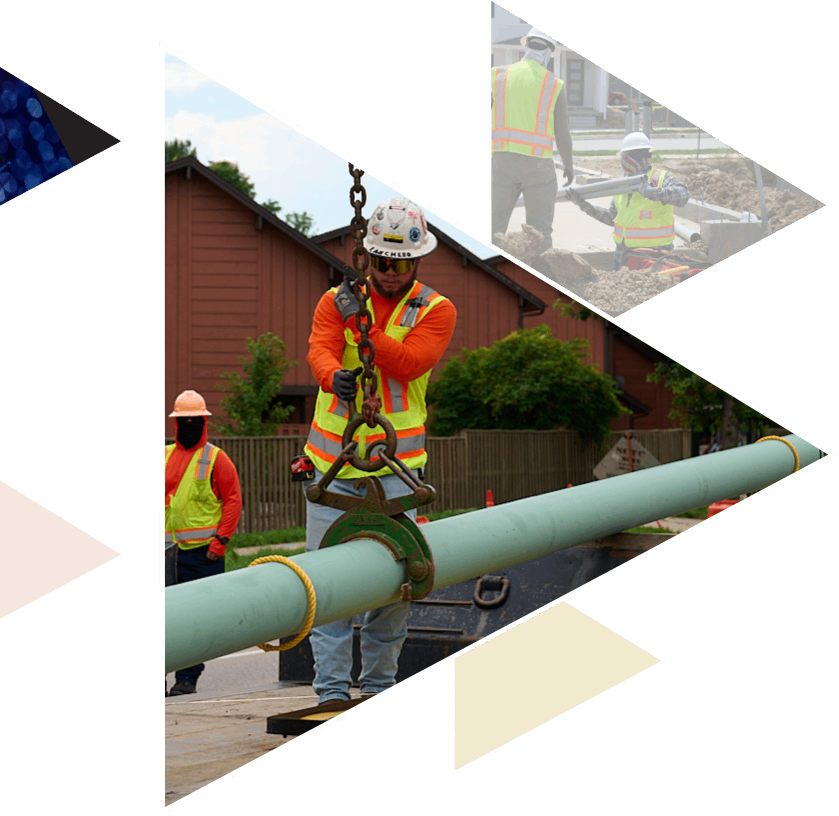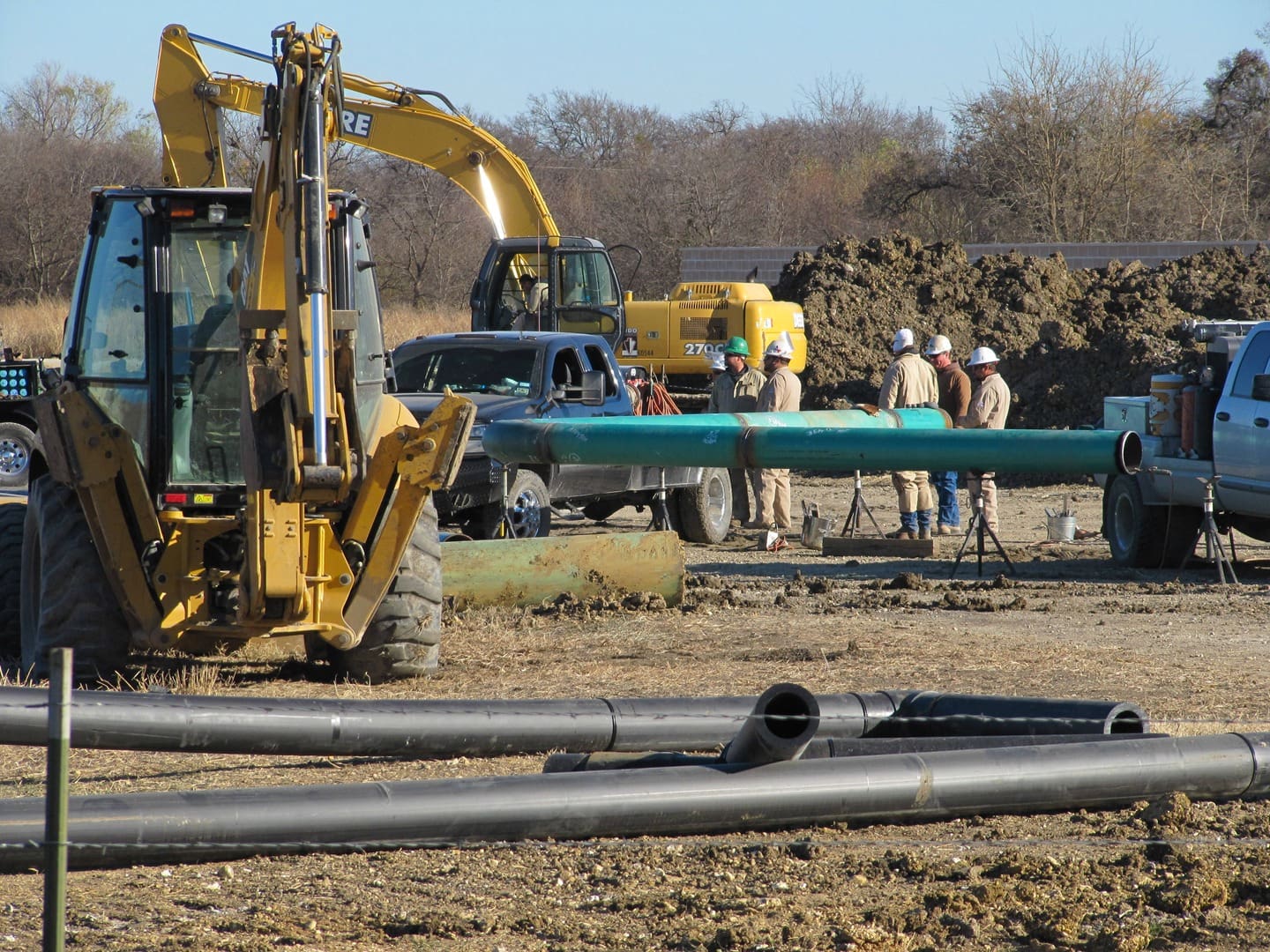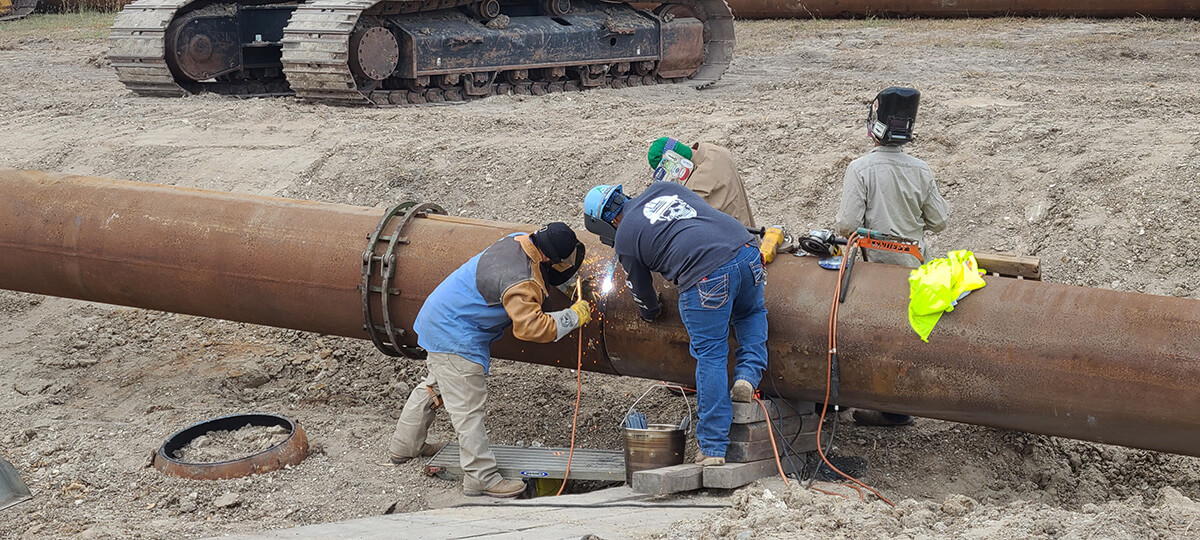The Ultimate Guide to Pipeline Construction Services for Developers
Wiki Article
The Essential Guide to Understanding Pipeline Construction Services and Their Relevance
Pipeline Construction solutions are essential to the transport of vital sources such as oil, gas, and water. These solutions involve precise preparation and implementation, adhering to rigorous safety and security and environmental requirements. As the market adapts to modern challenges, understanding its components and ramifications becomes increasingly important. What variables add to the growing value of these solutions in today's economic situation? The following areas will discover these critical elements.Introduction of Pipeline Construction Providers
Pipeline Construction solutions incorporate a series of tasks vital for the installment and maintenance of pipes made use of to move different substances, consisting of gas, oil, and water. These services are essential for assuring the efficient and risk-free motion of sources from one area to an additional. The procedure commonly begins with detailed planning and style, which considers governing demands, ecological considerations, and logistical challenges.Excavation and grading of the land are carried out to prepare the site for Pipeline setup as soon as planning is full. This is adhered to by the actual laying of the pipes, which includes welding or joining sections with each other to develop a constant flow course. After setup, strenuous testing is performed to ensure honesty and safety. Upkeep services are also supplied to attend to any kind of concerns that might occur with time. Generally, Pipeline Construction services play a crucial duty in sustaining infrastructure for energy and water distribution.
Key Components of Pipeline Construction
A successful Pipeline Construction job depends on a number of essential elements that ensure the safe and efficient installation of the Pipeline system. Initially, extensive site analyses are vital, as they identify the environmental and geographical aspects that might influence Construction. Next, the option of suitable products, such as installations and pipes, is crucial for protecting toughness and compatibility with the transferred compounds.In addition, progressed Construction strategies, including trenchless modern technology and directional drilling, enhance effectiveness and reduce ecological impact. Effective project monitoring is another vital part, coordinating labor, devices, and timelines to satisfy task goals.
Additionally, communication amongst stakeholders, including engineers, specialists, and local authorities, warranties alignment on task requirements and demands. Ultimately, detailed quality assurance procedures throughout the Construction process ensure compliance with industry criteria and maximize the Pipeline's functional lifespan. Jointly, these parts develop the backbone of an effective Pipeline Construction job.
Safety Criteria and Laws in Pipeline Construction

Regulatory bodies, such as the Occupational Security and Health Management (OSHA) and the Pipeline and Hazardous Products Security Administration (PHMSA), established forth specific needs that govern Construction practices. These include procedures for devices use, worker training, and emergency feedback procedures. By carrying out these requirements, Construction firms not only shield their employees yet also protected public depend on. Ultimately, strenuous security steps add to the lasting success of Pipeline projects, guaranteeing they satisfy both environmental and operational expectations.
Environmental Factors To Consider in Pipeline Projects

Ecological factors to consider are important to the preparation and execution of Pipeline projects. These jobs must assess prospective effects on environments, water resources, and local wild animals. Conducting complete ecological effect evaluations (EIAs) is crucial, allowing stakeholders to recognize and minimize threats prior to Construction begins.
Shielding delicate areas, such as habitats and wetlands, usually needs applying particular layout functions or alternative directing to reduce interruption. In addition, Pipeline operators are entrusted with developing approaches for stopping leaks and spills, which can have terrible results on the setting.
Engagement with neighborhood areas is vital, as public problems can cause job adjustments that enhance environmental management. Conformity with regulations established by ecological agencies guarantees that jobs meet sustainability requirements, cultivating an equilibrium between framework demands and eco-friendly conservation. Inevitably, resolving environmental factors to consider not just safeguards nature however additionally promotes community trust fund and project stability.
The Duty of Innovation in Pipeline Construction
Technology plays an essential duty in modern-day Pipeline Construction, enhancing effectiveness and accuracy. Advanced surveying methods permit for exact preparation and execution, decreasing environmental influence and project delays. Furthermore, the assimilation of automation and robotics improves procedures, reducing labor expenses and boosting security on Construction websites.Advanced Surveying Techniques
Advanced checking techniques play a vital role in the successful execution of Pipeline Construction tasks. These approaches take advantage of advanced modern technology to guarantee precise mapping and evaluation of the surface where pipelines will be mounted. Strategies such as Geographic Information Equipment (GIS), LiDAR (Light Discovery and Ranging), and 3D modeling enable designers to picture and assess the landscape, recognizing environmental worries and potential challenges. By using these advanced tools, teams can improve precision ready and placement, significantly decreasing the threat of errors throughout Construction. Additionally, real-time data collection enables instant changes and informed decision-making throughout the task lifecycle. Eventually, these evaluating technologies add to enhanced effectiveness, security, and sustainability in Pipeline Construction efforts.Automation and Robotics

Economic Impact of Pipeline Framework
Pipeline infrastructure plays a crucial function in assisting in and shaping local economies profession. By offering a trustworthy means of moving oil, gas, and other assets, pipelines reduce transport costs and improve supply chain efficiency. This facilities draws in financial investment, boosts task creation, and cultivates economic development in bordering locations.The Construction and maintenance of pipes add considerably to regional economic situations, producing various work possibilities in numerous sectors, from design to labor. The influx of tasks typically leads to increased costs in neighborhood companies, better bolstering economic activity.
Additionally, pipelines enhance power security by guaranteeing a steady supply of resources, which is important for industrial procedures and residential demands. As areas become interconnected with Pipeline networks, they acquire accessibility to broader markets, increasing competitiveness and economic resilience. The economic effect of Pipeline facilities is multifaceted, affecting both instant local economic situations and more comprehensive local growth.
Future Fads in Pipeline Construction Providers
The future of Pipeline Construction services is progressing in feedback to technical advancements, governing changes, and growing ecological factors to consider. Advancements such as robotics and drones are streamlining inspection and maintenance processes, improving security and efficiency. Automation is positioned to reduce labor prices and raise accuracy in Construction procedures. Additionally, the boosting emphasis on sustainability is prompting firms to take on environmentally friendly products and methods, lining up with worldwide initiatives to reduce carbon footprints.Regulative structures are additionally adapting to attend to ecological effects, pressing for better openness and liability in Pipeline jobs. In addition, the integration of wise innovations, consisting of real-time monitoring systems, is expected to improve the integrity and performance of Pipeline networks. As energy needs change toward renewable resources, Pipeline Construction services will likely see a rise in projects associated to biofuels and hydrogen transport. Generally, these fads show a transformative duration for the Pipeline Construction industry, concentrated on development and sustainability.
Often Asked Questions
What Types of Pipelines Are Frequently Created?
Different sorts of pipes are generally constructed, including oil, gas, water, and sewage pipes - Pipeline Construction Services. Each serves unique functions, promoting the transportation of necessary resources across regions while adhering to safety and environmental guidelinesHow much time Does a Common Pipeline Project Take?
The period of a typical Pipeline Construction Services Pipeline project varies substantially, usually varying from numerous months to a few years. Elements influencing this timeline include task complexity, regulative approvals, and ecological considerations that need to be dealt with.Who Regulates Pipeline Construction Business?
Pipeline Construction firms are controlled by numerous government, state, and neighborhood firms, including the Pipeline and Hazardous Materials Safety And Security Administration (PHMSA) and state public utility payments, guaranteeing conformity with safety and security and environmental standards throughout the Construction process.What Prevail Materials Utilized in Pipeline Construction?
Common products used in Pipeline Construction include polyethylene, pvc, and steel. Each product uses unique advantages such as resistance, adaptability, and sturdiness to rust, making them ideal for numerous applications in transporting liquids and gases.
Just How Are Pipeline Construction Costs Approximated?
Pipeline Construction expenses are estimated by more helpful hints analyzing variables such as product expenses, labor prices, job complexity, ecological factors to consider, and regulative requirements (Pipeline Construction Services). Exact expense estimation assurances efficient budgeting and task preparation throughout the Construction processPipeline Construction solutions encompass an array of activities important for the installment and maintenance of pipes utilized to transport numerous substances, consisting of gas, oil, and water. An effective Pipeline Construction job counts on a number of vital elements that assure the risk-free and effective setup of the Pipeline system. Advanced surveying methods play an important function in the successful implementation of Pipeline Construction projects. Different kinds of pipelines are frequently constructed, including oil, sewer, gas, and water pipelines. Pipeline Construction prices are approximated by evaluating variables such as material costs, labor prices, project complexity, ecological factors to consider, and regulatory requirements.
Report this wiki page